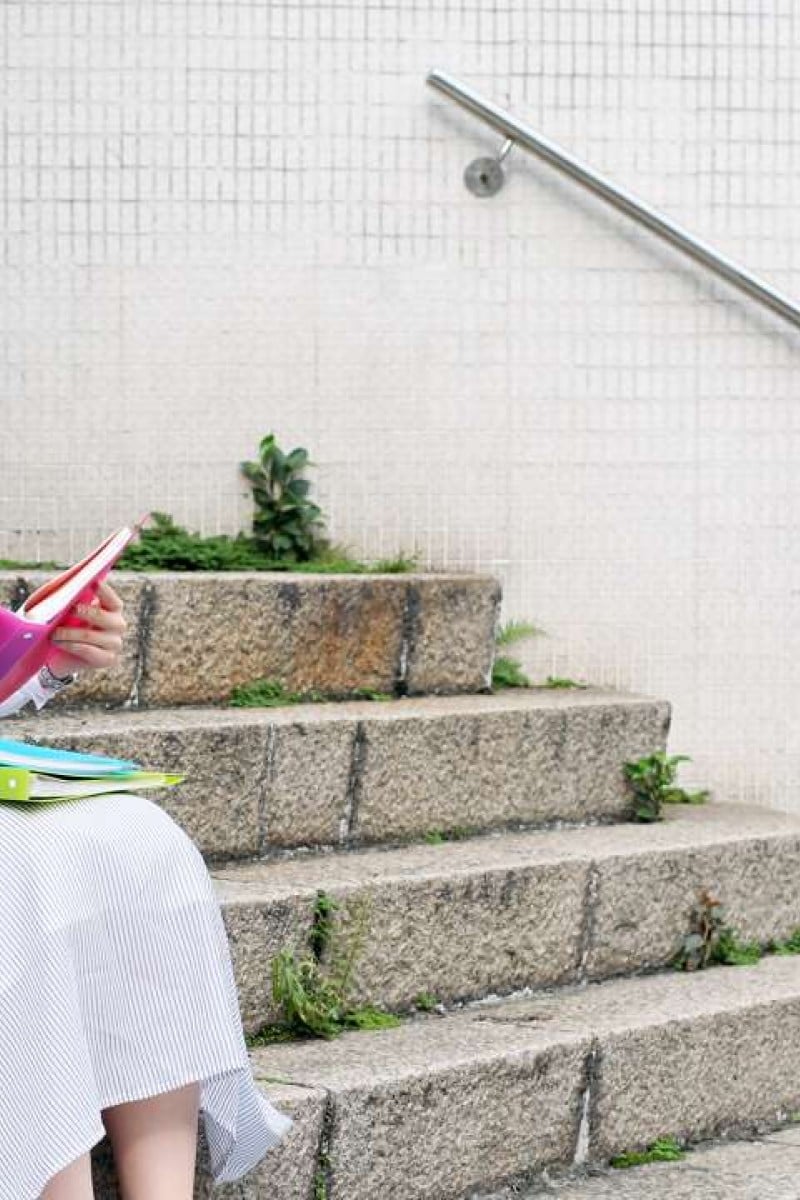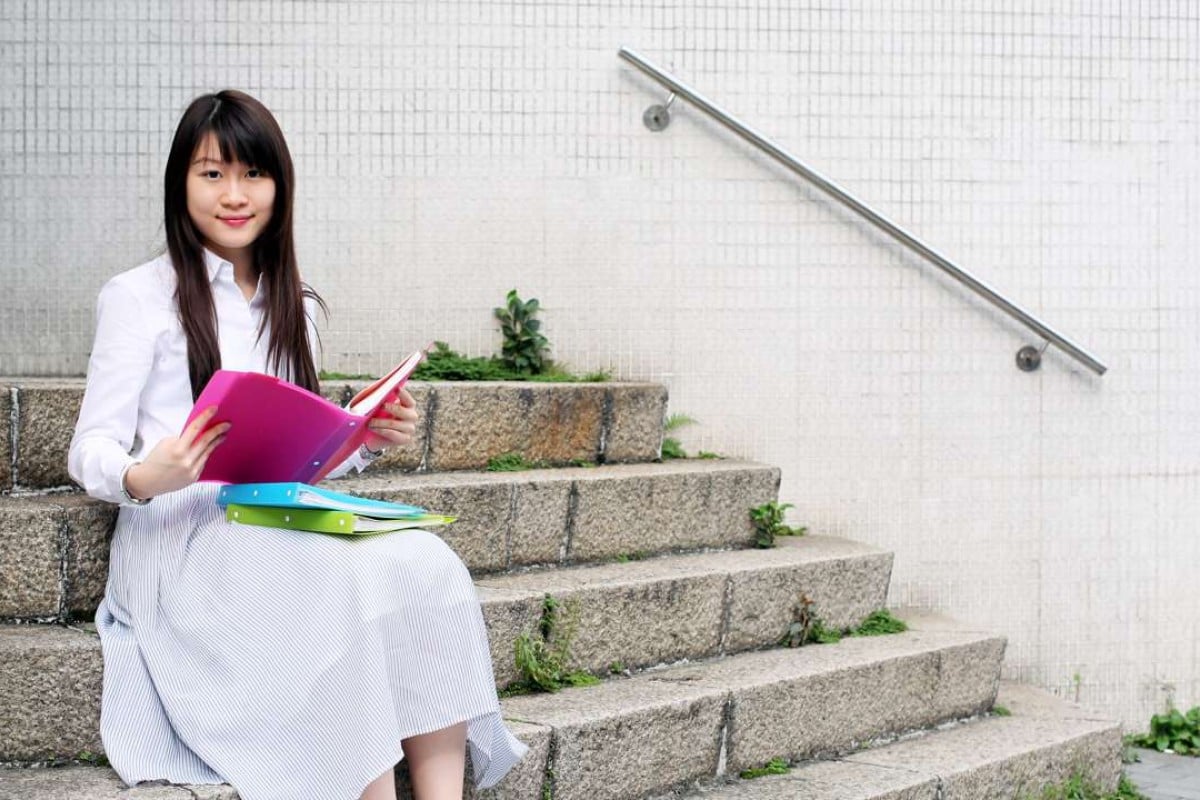
Top scorer Melody Tam provides her summer study schedule and DSE Chinese exam tips
2015 DSE top scorer Melody Tam owes a lot of her success to her strict study schedule, and is back to offer tips on what students can do during the summer holidays to help them prepare for the Chinese and other exams
 Interview with Melody Tam Lok-man, 2015 DSE Top scorer who has a YouTube channel offering practical exam tips; picture taken in Causeway Bay. 06APR16 SCMP/ Stanley Shin
Interview with Melody Tam Lok-man, 2015 DSE Top scorer who has a YouTube channel offering practical exam tips; picture taken in Causeway Bay. 06APR16 SCMP/ Stanley ShinThis year’s Hong Kong Diploma of Secondary Education Examination (HKDSE) yielded the lowest number of top performers since 2012 – and educators believe it may have something to do with the Chinese curriculum in place.
For the 2017 DSE Chinese exam, students will continue to be tested on their understanding of two pieces of contemporary writing, plus a passage from the classics or an ancient text – from any period in time in Chinese civilisation. From 2018 onwards, students will be tested on two modern literary texts and 12 prescribed classical Chinese texts.
Nineteen-year-old Melody Tam Lok-man, a top scorer in the 2015 DSE exam, has a few tips and tricks on how to get the most out of your studying during the summer holidays so that you can remain at the head of the pack.
Know your Chinese phrases:
One of the more feared aspects of Paper One is the classical Chinese reading passage. Many students find it difficult to understand classical Chinese words, proverbs and sayings, as they are not in common use anymore. Tam suggests getting a head start during the summer holidays by reading the Hong Kong Certificate of Education Examination (HKCEE) classical set texts.
“They’re easier than DSE Paper One classical passages. The first thing you need to do is jot down common words that appear in ancient texts in your notebooks,” Tam says. “Then write the definitions of these words and explain how they are used in classical texts.” She adds that now is the time to do it – when school starts up again, you won’t have enough time.
It isn’t always easy to work out the definition of a classical word or phrase in a passage because they don’t always have just one meaning, or can mean different things in different passages depending on the context. Tam suggests that you should read as many ancient texts as possible, so that you begin to figure out what the words or phrases actually mean. “It takes time to memorise their meanings too,” she says.
Recognise what sort of question is being asked:
Another good thing to do is to take note of the different types of questions that are asked on ancient texts. In past Paper One exams, these questions have mainly focused on a) literary appreciation, b) the use of literary devices, and c) the definition of classical terms.
Some HKCEE Chinese classical set texts have been incorporated into the DSE Chinese curriculum. Students who won’t be taking the exam until 2018 can look to past HKCEE Chinese papers to get a good idea on what sort of questions might be asked.
Good time management is key:
Tam suggests reading ancient texts and memorising classical terms in the morning, and that in Form Five, this was the first thing she did in the day. “It’s better to do this boring stuff in the morning because I’m sure you won’t be motivated to do it at night.” When she was feeling less than motivated, Tam would remind herself of the reasons she was getting up early, and what she had to gain from sacrificing an hour or two of sleep. Knowing that high scores were at stake gave her extra focus and motivation.
Tam has put together a simple daily schedule for Young Post readers to make the most of their study time for the rest of the summer:
8.30am – Wake up.
9am-10am – Memorise some classical Chinese words, read at least one ancient text, or study different text types for both the DSE Chinese writing and the comprehension papers. Don’t forget to make a note of memorable proverbs, idioms or inspirational quotes that you come across. These will come in useful in your writing exam.
10am-11am – Focus on English vocabulary and read up on sentence structures. Start incorporating any new words you learn into sentences so you get used to using them, and understand why and when these words are used.
11am-1pm – This is when your mind is clearest, Tam says, and is the best time to study maths.
1pm-2pm – Lunch time! Don’t forget to take a break and have something to eat. Don’t push yourself into skipping lunch to do more studying – when your body is low on energy you won’t be able to study efficiently.
2pm-5pm – Answer one past paper in Chinese or English, and work out how long your real exam might take you to complete. When you are done, grade it using the marking scheme, and see where you went wrong. Make a note of the questions that you struggled on, and do them again. Read the marking scheme in detail to get a better idea of what examiners are looking for.
5pm-7pm – Study one elective.
